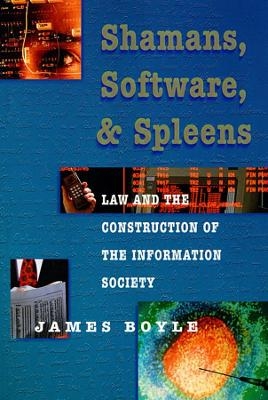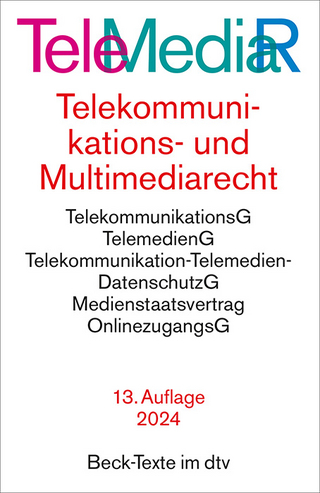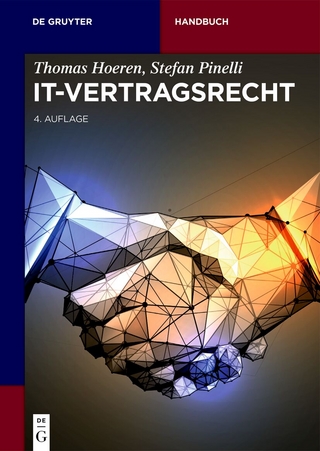
Shamans, Software, and Spleens
Law and the Construction of the Information Society
Seiten
1997
Harvard University Press (Verlag)
978-0-674-80523-1 (ISBN)
Harvard University Press (Verlag)
978-0-674-80523-1 (ISBN)
James Boyle explores matters as diverse as blackmail; ownership of genetic information; insider trading; Johnny Carson, Bela Lugosi and the Gay Olympics; the doctor as artist and the patient as “public domain”; cyberspace as land; censorship; and robot slavery in this first social theory of the information age.
Who owns your genetic information? Might it be the doctors who, in the course of removing your spleen, decode a few cells and turn them into a patented product? In 1990 the Supreme Court of California said yes, marking another milestone on the information superhighway. This extraordinary case is one of the many that James Boyle takes up in Shamans, Software, and Spleens, a timely look at the infinitely tricky problems posed by the information society. Discussing topics ranging from blackmail and insider trading to artificial intelligence (with good-humored stops in microeconomics, intellectual property, and cultural studies along the way), Boyle has produced a work that can fairly be called the first social theory of the information age.
Now more than ever, information is power, and questions about who owns it, who controls it, and who gets to use it carry powerful implications. These are the questions Boyle explores in matters as diverse as autodialers and direct advertising, electronic bulletin boards and consumer databases, ethno-botany and indigenous pharmaceuticals, the right of publicity (why Johnny Carson owns the phrase "Here's Johnny!"), and the right to privacy (does J. D. Salinger "own" the letters he's sent?). Boyle finds that our ideas about intellectual property rights rest on the notion of the Romantic author--a notion that Boyle maintains is not only outmoded but actually counterproductive, restricting debate, slowing innovation, and widening the gap between rich and poor nations. What emerges from this lively discussion is a compelling argument for relaxing the initial protection of authors' works and expanding the concept of the fair use of information. For those with an interest in the legal, ethical, and economic ramifications of the dissemination of information--in short, for every member of the information society, willing or unwilling--this book makes a case that cannot be ignored.
Who owns your genetic information? Might it be the doctors who, in the course of removing your spleen, decode a few cells and turn them into a patented product? In 1990 the Supreme Court of California said yes, marking another milestone on the information superhighway. This extraordinary case is one of the many that James Boyle takes up in Shamans, Software, and Spleens, a timely look at the infinitely tricky problems posed by the information society. Discussing topics ranging from blackmail and insider trading to artificial intelligence (with good-humored stops in microeconomics, intellectual property, and cultural studies along the way), Boyle has produced a work that can fairly be called the first social theory of the information age.
Now more than ever, information is power, and questions about who owns it, who controls it, and who gets to use it carry powerful implications. These are the questions Boyle explores in matters as diverse as autodialers and direct advertising, electronic bulletin boards and consumer databases, ethno-botany and indigenous pharmaceuticals, the right of publicity (why Johnny Carson owns the phrase "Here's Johnny!"), and the right to privacy (does J. D. Salinger "own" the letters he's sent?). Boyle finds that our ideas about intellectual property rights rest on the notion of the Romantic author--a notion that Boyle maintains is not only outmoded but actually counterproductive, restricting debate, slowing innovation, and widening the gap between rich and poor nations. What emerges from this lively discussion is a compelling argument for relaxing the initial protection of authors' works and expanding the concept of the fair use of information. For those with an interest in the legal, ethical, and economic ramifications of the dissemination of information--in short, for every member of the information society, willing or unwilling--this book makes a case that cannot be ignored.
James Boyle is Professor of Law at American University.
Preface 1. The Information Society 2. Four Puzzles 3. The Public and Private Realms 4. Information Economics 5. Intellectual property and the Liberal State 6. Copyright and the Invention of Authorship 7. Blackmail 8. Insider Trading and the Romantic Entrepreneur 9. Spleens 10. Stereotyping Information and Searching for an Author 11. The International Political Economy of Authorship 12. Private Censors, Transgenic Slavery, and Electronic 13.Indenture 14. Proposals and Objections Conclusion Appendix A. An Afterword on Method Appendix B. The Bellagio Declaration Notes Acknowledgments Index
| Erscheint lt. Verlag | 29.11.1997 |
|---|---|
| Zusatzinfo | 1 table |
| Verlagsort | Cambridge, Mass |
| Sprache | englisch |
| Maße | 156 x 235 mm |
| Gewicht | 481 g |
| Themenwelt | Mathematik / Informatik ► Informatik |
| Recht / Steuern ► Allgemeines / Lexika | |
| Recht / Steuern ► EU / Internationales Recht | |
| Recht / Steuern ► Privatrecht / Bürgerliches Recht ► IT-Recht | |
| Sozialwissenschaften ► Kommunikation / Medien ► Kommunikationswissenschaft | |
| ISBN-10 | 0-674-80523-2 / 0674805232 |
| ISBN-13 | 978-0-674-80523-1 / 9780674805231 |
| Zustand | Neuware |
| Haben Sie eine Frage zum Produkt? |
Mehr entdecken
aus dem Bereich
aus dem Bereich
Telekommunikations- und Multimediarecht
Buch | Softcover (2024)
dtv Verlagsgesellschaft
27,90 €
Datenschutz-Grundverordnung Bundesdatenschutzgesetz
Buch | Hardcover (2024)
C.F. Müller (Verlag)
200,00 €


